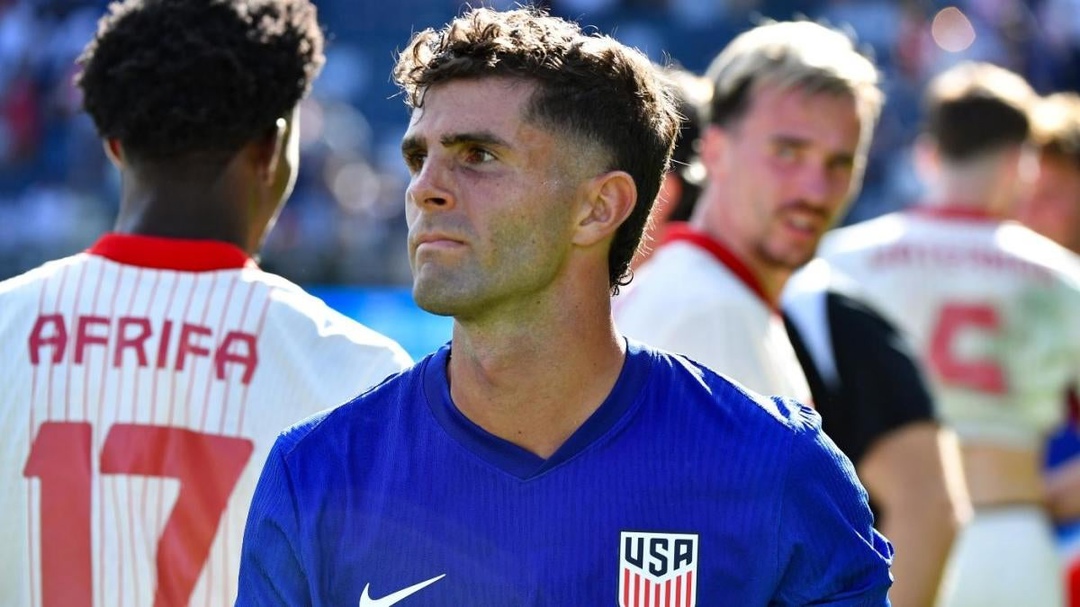
CARSON, Calif. – As they prepare for Sunday`s game against Canada, the U.S. men`s national team is determined to cultivate a stronger “killer mentality.” This focus comes after a disappointing loss to Panama in the Concacaf Nations League semifinal, which the team is eager to put behind them.
The defeat against Panama added to a series of underwhelming performances for the USMNT, raising concerns about the team`s mental fortitude and their ability to reach their full potential as the 2026 World Cup approaches. These concerns have been voiced both by external critics and within the team itself. Coach Mauricio Pochettino and players have acknowledged a lack of competitive sharpness, a view that midfielder Tyler Adams supports.
Adams admitted, “I would criticize us, too. If we want to be praised, we need to give people a reason to praise us.”
To address this issue, the team held a meeting led by Pochettino.
Winger Timothy Weah described the meeting as “beautiful,” explaining that Pochettino emphasized the need for a “killer mentality.” “We have to want it 100%. We have to fight, we have to work together,” Weah stated, highlighting the team`s collective goal of achieving success.
Since the loss, the team has engaged in both formal and informal discussions, conducting introspective reviews to pinpoint their weaknesses.
Weah confessed that when facing teams perceived as weaker, there`s a tendency to lose some intensity, assuming the game will be easier. This echoed Pochettino`s opinion, who felt the issue wasn`t solely with the players.
Pochettino Urges Greater Intensity
Pochettino reflected on the team`s approach, suggesting they need to bring the same urgency they have at their club teams. “When we lose at our clubs, there are serious consequences. Perhaps that sense of urgency isn`t always present here,” he noted. He felt there was a collective expectation that opportunities would arise, leading to goals and a victory, which resulted in a relaxed start to the game. “That was the wrong feeling because you need to score, be aggressive, proactive, score multiple goals and then relax. We wasted 45 minutes, and while we improved in the second half, we paid for it in the end. It`s a consequence of starting the game too relaxed.”
Pochettino also attributed the problems to the team being relatively new, with limited time together due to injuries and scheduling conflicts. He believes the players might be overly focused on executing instructions perfectly, rather than seizing spontaneous opportunities during the game.
“It`s like we play without the main goal, which is to score,” he said. “When building something new, you aim to dominate and control. You need structure, but once it`s in place, you must accelerate, attack, and be aggressive. That attacking edge was missing.”
The players recognize this missing competitive edge as crucial, aligning with Pochettino`s tactical vision. They aim to match the energy of Canada and instill this mentality.
Adams: `We Must Raise Our Standards`
Adams stressed the need to match and exceed the intensity of every Concacaf opponent, not just Canada, citing Panama as a prime example. “We need to raise the bar. We must set the tone in every game. We can`t wait to react to the opponent`s first move, because sometimes that first move can knock you out. There shouldn`t need to be extra motivation, regardless of whether it`s a third-place game or any other match. We are representing our country, and that should be the ultimate wake-up call.”
Weah believes the Canada game could be an initial demonstration of the USMNT`s potential if they can harness their abilities, especially with the 2026 World Cup on home soil in mind.
“Games like Panama highlight the need for change,” Weah said. “It`s a learning experience, and with the new coach, it`s great to work on his ideas. Every player is excited to be here and grow under him. In the next year or so before the World Cup, you`ll see a different team. He`ll bring out the best in us, and these challenging moments are necessary to fine-tune and improve. So, while it`s a negative result, it`s also a positive opportunity for growth.”











